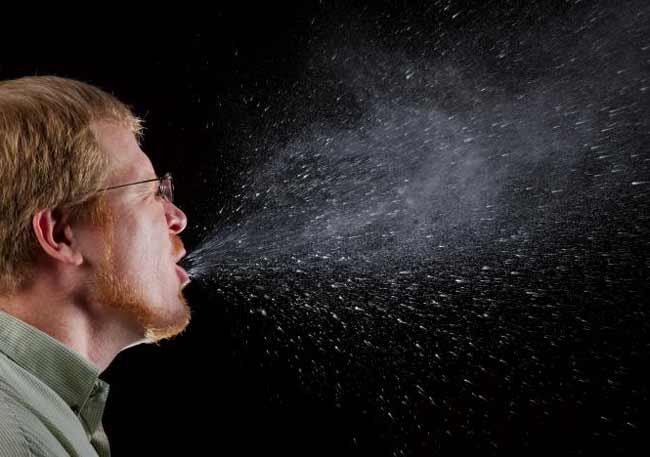A Simple Sneeze Raises Fear of Death

In the current atmosphere of heightened concern over the H1N1 virus, the everyday sneeze can trigger fears of totally unrelated hazards, including heart attacks, new research suggests.
An everyday achoo reminds people that swine flu is lurking, the researchers found. That intensifies worries about flu. From there, people rely on current feelings to assess unrelated health risks and even policy decisions, the study found.
"When there is a health threat and people are exposed to little reminders of that it elicits a fear response that makes you feel that the world is a dangerous place," study researcher Norbert Schwarz of the University of Michigan told LiveScience.
In May 2009, when swine flu was receiving lots of media attention, Schwarz and his colleagues surveyed 50 college students after each had passed by an actor who was either sneezing or didn't sneeze or cough.
The participants indicated how likely on a scale from 0 (impossible) to 100 (certain to happen) it would be for an average American to contract a serious disease; to have a heart attack before age 50; and to die from a crime or accident. They also indicated how well our health care system works.
Overall, the sneeze group indicated higher likelihoods for all risks compared with the non-sneeze group. Those who passed a sneezer rated the heart attack risk at an average of 45, compared with a rating of 32 for the non-sneeze group. That's like saying you think 45 percent of Americans will have a heart attack before they reach 50.
Those within hearing distance of a sneeze also had far more negative views of our health care system.
Sign up for the Live Science daily newsletter now
Get the world’s most fascinating discoveries delivered straight to your inbox.
In another study that May, nearly 50 pedestrians at shopping malls and business areas agreed to participate in a one-minute survey. For those in the sneezing condition, the experimenter held a questionnaire in her right hand and coughed and sneezed while covering her mouth with her left forearm before handing the survey to the participant. For the control condition, the same scenario played out, but the experimenter didn't sneeze.
Participants then indicated whether they'd prefer the government to spend $1.3 billion to facilitate the production of flu vaccines or to create green jobs. Another question asked participants whether the country is on the right or wrong track.
About 48 percent of participants who were sneezed on reported they'd prefer to spend government money on vaccine development, compared with 17 percent of those who didn't get sneezed on.
The proximity to a sneeze didn't seem to affect people's ratings on whether the country is on the right track, suggesting the sneeze didn't elicit complete negativity.
The study will be published in a forthcoming issue of the journal Psychological Science.
- Video – Flu Myths & Truths
- 10 Easy Paths to Self Destruction
- The Odds of Dying
Jeanna Bryner is managing editor of Scientific American. Previously she was editor in chief of Live Science and, prior to that, an editor at Scholastic's Science World magazine. Bryner has an English degree from Salisbury University, a master's degree in biogeochemistry and environmental sciences from the University of Maryland and a graduate science journalism degree from New York University. She has worked as a biologist in Florida, where she monitored wetlands and did field surveys for endangered species, including the gorgeous Florida Scrub Jay. She also received an ocean sciences journalism fellowship from the Woods Hole Oceanographic Institution. She is a firm believer that science is for everyone and that just about everything can be viewed through the lens of science.










